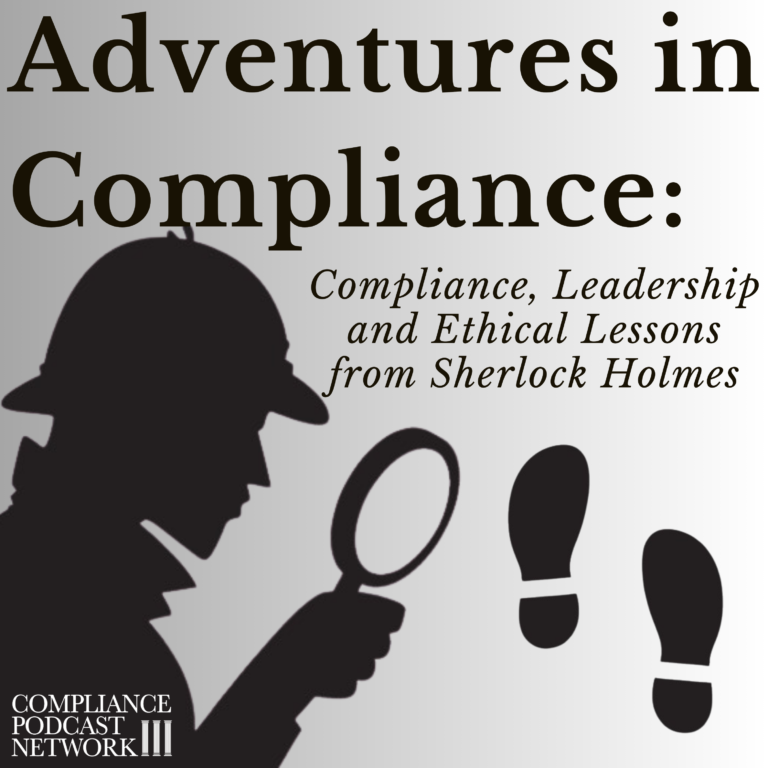Welcome to a review of all the Sherlock Holmes stories that are collected in the work, “The Return of Sherlock Holmes.”
It is a collection of thirteen detective stories written by Sir Arthur Conan Doyle, marking the reappearance of the brilliant detective Sherlock Holmes after his apparent death in “The Final Problem.” The collection spans various intriguing cases and mysteries that Holmes and his loyal friend Dr. John Watson tackle.
Today we consider some compliance lessons and investigative insights from The Adventure of the Missing Three-Quarter.
In an engaging twist on corporate compliance, the Adventures in Compliance podcast, hosted by Tom Fox, aims to use the beloved detective Sherlock Holmes as a unique lens for analyzing these principles.
This upcoming season will focus on “The Return of Sherlock Holmes,” delving into the detective’s meticulous use of logic, observation, and empirical evidence in solving cases, all while upholding integrity, honesty, and justice.
Fox, drawing from his extensive experience in corporate compliance, emphasizes the ethical parallels between the work of the world’s greatest fictional detective and compliance professionals, highlighting key values such as empathy, truthfulness, confidentiality, and professionalism.
By connecting the principles exemplified by Holmes to those crucial for compliance work, Fox offers an intriguing perspective on the importance of these ethical guidelines in professional roles.
Key Highlights:
- The Story
- Empirical Evidence in Holmes’ Investigations
- Ethical Lessons from Sherlock Holmes Podcast
Resources:
The New Annotated Sherlock Holmes
Sherlock Holmes FAQ
Connect with Tom Fox
For more information on Ethico and a free White Paper on top compliance issues in 2024, click here.






